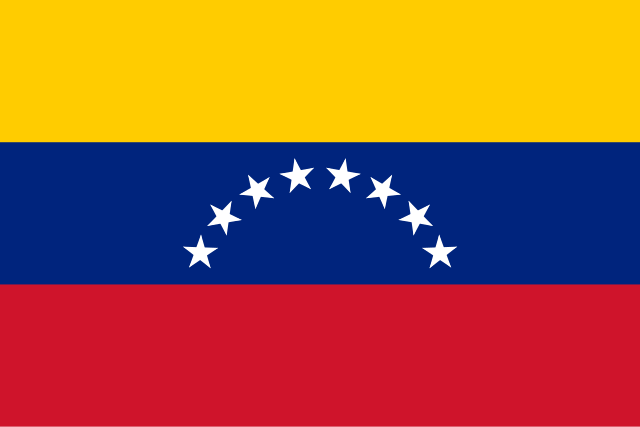









Venezuela continues to face a complex humanitarian and political crisis, characterized by severe economic downturns, mass migration, and political unrest. This article delves into the multi-faceted aspects of the situation, examining its historical roots and current implications.
Historical Context: A Nation in Turmoil
The Rise and Fall of Oil Wealth
- Oil Dependency: Venezuela has the largest oil reserves in the world, which once drove its economic growth and social programs.
- Economic Mismanagement: The reliance on oil led to vulnerability; mismanagement and corruption eroded the potential benefits of this resource.
Hugo Chávez and the Bolivarian Revolution
- Populism: Chávez's rise in 1999 marked the beginning of a new political era, promoting socialism and wealth redistribution.
- Legacy of Division: His polarizing leadership created deep divisions within Venezuelan society, setting the stage for ongoing conflict.
Nicolás Maduro's Continuation of Chávez's Policies
- Controversial Succession: Maduro's tenure has been marked by allegations of election fraud and increasing authoritarianism.
- International Isolation: His government faces sanctions from multiple countries, further complicating diplomatic relations.
Economic Collapse: The Human Cost
Hyperinflation and Poverty
- Staggering Inflation Rates: Venezuela has experienced hyperinflation, with estimates reaching over 3,000% annually, devastating the purchasing power of citizens.
- Food and Medical Shortages: Basic necessities are scarce; hospitals struggle without supplies, leading to widespread malnutrition and health crises.
Migration Crisis
- Exodus of Citizens: Millions have fled Venezuela, leading to one of the largest migration crises in the region's history, with neighboring countries overwhelmed by the influx.
- Impact on Regional Stability: This migration has strained resources in countries like Colombia and Brazil, contributing to regional tensions.
Political Climate: A Nation Divided
Opposition Movements
- Struggles Against Authoritarianism: Various opposition groups have emerged, advocating for democracy and reform, often facing violent repression.
- Role of International Support: External forces, including the United States and European nations, have offered support to the opposition, complicating internal dynamics.
Government Response
- Repression of Dissent: The Maduro government has employed heavy-handed tactics to quash protests, including arrests and censorship.
- Propaganda and Control: State-controlled media propagates a narrative of resilience, often downplaying the severity of the crisis.
Social Fabric: Resilience Amidst Despair
Community Solidarity
- Grassroots Initiatives: In the face of adversity, communities have banded together, establishing mutual aid networks and local economies.
- Cultural Identity: Venezuelans maintain a strong sense of national identity, using art, music, and culture to express their struggles and resilience.
The Role of the Diaspora
- Cultural Ambassadors: Venezuelan expatriates contribute to the global understanding of the crisis, advocating for their homeland and fostering a sense of community abroad.
- Remittances: Financial support from the diaspora plays a crucial role in supporting families still in Venezuela, providing a lifeline amid economic collapse.
International Response: A Complicated Landscape
Sanctions and Their Impact
- Economic Sanctions: The U.S. and other nations have imposed sanctions aimed at crippling the Maduro regime, but these often exacerbate the humanitarian situation.
- Debate Over Effectiveness: While some argue sanctions are necessary to pressure the government, others claim they disproportionately affect ordinary citizens.
Humanitarian Aid
- Challenges of Delivery: Efforts to provide humanitarian aid often face political hurdles, with the government accusing foreign entities of interference.
- International Organizations' Role: NGOs and international bodies strive to navigate these complexities to deliver much-needed assistance.
Looking Ahead: Future Prospects
Potential for Change
- Elections and Dialogue: The possibility of new elections or negotiations remains a contentious topic, with varying opinions on their feasibility.
- International Mediation: Some advocate for increased international mediation to facilitate dialogue between the government and opposition.
Long-Term Solutions
- Economic Reforms: Experts suggest comprehensive economic reforms are essential for rebuilding the nation, focusing on diversification beyond oil.
- Social Rebuilding: Addressing the social fabric by investing in education, health care, and infrastructure will be crucial for long-term recovery.
Conclusion: A Nation at a Crossroads
Venezuela's crisis is not merely a political issue; it is a multifaceted catastrophe affecting millions. As the nation grapples with its tumultuous past and uncertain future, understanding the complexities of its situation is paramount for fostering meaningful dialogue and potential solutions. The resilience of its people shines through, offering hope amid despair, but substantial change is necessary to secure a stable and prosperous future for Venezuela.
